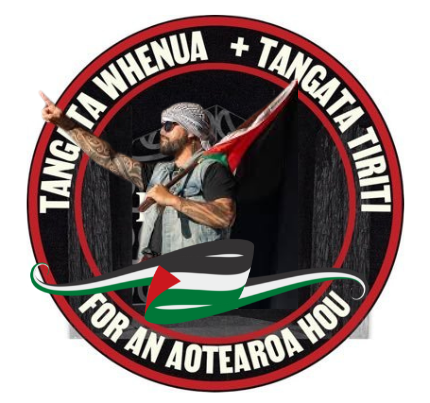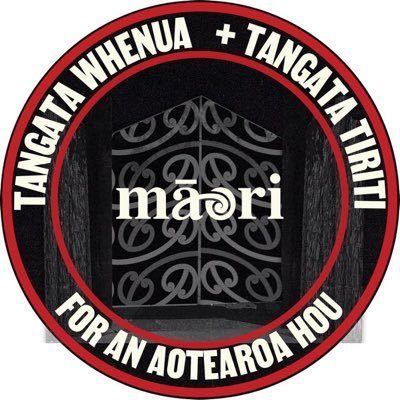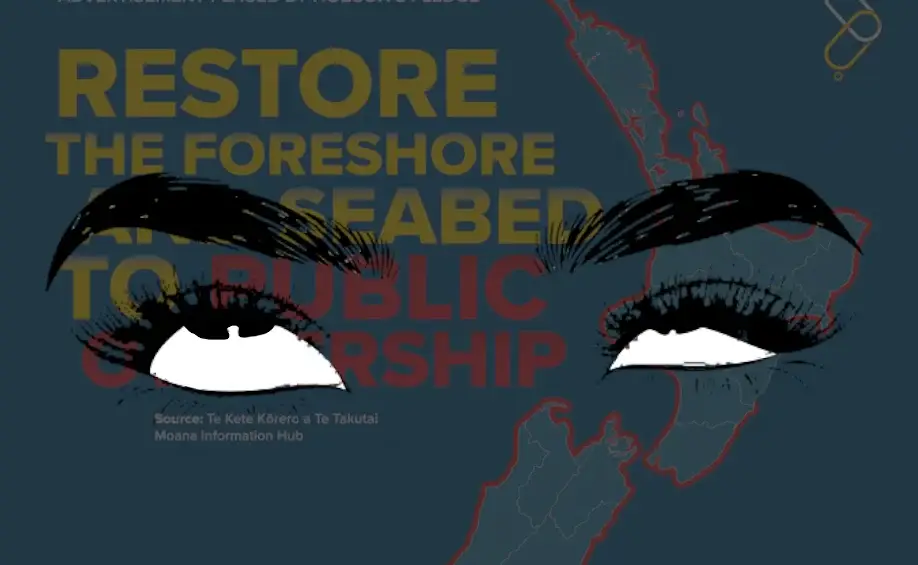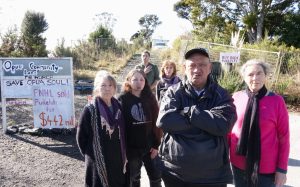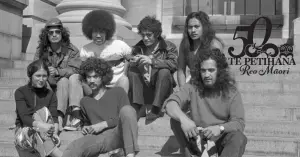TRIGGER WARNING: CONTAINS RACIST MEDIA

We cannot overstate the importance of media in upholding colonial supremacy. It can set norms through promoting science, but it can also shape public opinion through appealing to emotions, values or desires. Media drives narratives, and from our earliest days – even as we sat around fires in caves – narratives have been a dominant form of social control. Media narratives shape how we make sense of, and respond to social issues and challenges around us. They communicate ideas of what is acceptable, and who we should aspire to be like, or who we should reject and revile. For this reason, the person telling the narrative has always been very important. It is their perspective that will work its way into the hearts and minds of the people – and the will of the people will determine who will lead, and where they will lead us.
Throughout history we have seen the importance of how shaping the narrative of an issue, shapes how it is responded to – this is the very point of propaganda, misinformation and disinformation – it is not for its own sake, but to shape how people respond to an issue – including endorsing violent colonialism and acts of war. Aotearoa is no exception to this. If we look to the history of news media in Aotearoa we see a recurrent theme: colonial land grabbing. Some of our most longstanding news publications are tied into our history of colonial racism, the most pertinent of which right now, is the New Zealand Herald who last week accepted advertising dollars from right-wing conservative group Hobson’s Pledge for this old racist (and completely false and misleading) chestnut:
It’s a tried and true racial divisive tactic, that Hobson’s Pledge have relied upon at regular intervals to stoke anxiety and direct hate and fear towards Māori. If you’d like to know the details on how and why it is false and misleading, here is the statement from Te Hunga Roia Māori/Māori Law Society:

Māori Journalist’s Association Kawea Te Rongo also issued a swift condemnation and immediately reached out to Māori journalists at the Herald to offer support.
What I’d prefer to focus on, though, is the role of media in upholding racism in Aotearoa, and perhaps one way we can tell that story is also through the Herald.
Founded in 1863, the New Zealand Herald eventuated out of a spat between partners William Chisholm Wilson and John Williamson, who together ran “The New Zealander”. Whereas John Williamson opposed the war upon Māori, Wilson supported it, and after splitting to start the New Zealand Herald, called the war the “native rebellion”. Wilson’s distate for Māori rights was on full display in his very first Herald editorial, where he wrote:

And this little gem:

Even though it’s evident William and Wilson felt differently, these were still not unusual sentiments for the average 19th century European colonial “settler”, nor the average colonial editor. Other contemporaries of the New Zealand media scene included Julius Vogel, who as a politician was an avid supporter of “assisted settlement” (ie offering land and benefits for settlers to move here from UK and Europe) and rapid acquisition of Māori land for those purposes, as well as Edward Wakefield, also a politician and nephew of infamous Edward Gibbon Wakefield who founded the New Zealand Company. From the very outset, New Zealand media has held a deep relationship with political and economic dispossession of Māori.

The Wilson family would eventually become somewhat of a newspaper dynasty, eventually forming media organisation Wilson & Horton, which would eventually become NZME (owner of NZ Herald and 22 other New Zealand regional newspapers), and the Wilson family has remained prominent over time through the organisation right through to today where descendant Matthew Wilson remains the NZME Chief Operating Officer.
That’s not to point the finger at Matthew Wilson’s heritage, of course. That is merely one interesting facet in a multi-layered complex of influencing factors, including stakeholders and board – as has been pointed out in social media this past week. If we look to the board chair, Barbara Chapman, we see that she is also the Chair of Genesis Energy, who own the Huntly coal-powered power station. Barbara is also the deputy Chair of the NZ Initiative, one of 2 New Zealand partners to the anti-Indigenous, anti-climate justice Atlas Network. She is also an independent director on the board of Fletcher Building (infamous for its attempted development of whenua Māori at Ihumātao).
Let us also look to the major stakeholders of NZME, the largest of which is Citicorp, who deal largely in mining and metals, and the second largest of which is Clearstream who provide financial services to Shell Oil. Together, these two groups hold nearly 36% of the shares of NZME.
https://platform.twitter.com/embed/Tweet.html?dnt=true&embedId=twitter-widget-0&features=eyJ0ZndfdGltZWxpbmVfbGlzdCI6eyJidWNrZXQiOltdLCJ2ZXJzaW9uIjpudWxsfSwidGZ3X2ZvbGxvd2VyX2NvdW50X3N1bnNldCI6eyJidWNrZXQiOnRydWUsInZlcnNpb24iOm51bGx9LCJ0ZndfdHdlZXRfZWRpdF9iYWNrZW5kIjp7ImJ1Y2tldCI6Im9uIiwidmVyc2lvbiI6bnVsbH0sInRmd19yZWZzcmNfc2Vzc2lvbiI6eyJidWNrZXQiOiJvbiIsInZlcnNpb24iOm51bGx9LCJ0ZndfZm9zbnJfc29mdF9pbnRlcnZlbnRpb25zX2VuYWJsZWQiOnsiYnVja2V0Ijoib24iLCJ2ZXJzaW9uIjpudWxsfSwidGZ3X21peGVkX21lZGlhXzE1ODk3Ijp7ImJ1Y2tldCI6InRyZWF0bWVudCIsInZlcnNpb24iOm51bGx9LCJ0ZndfZXhwZXJpbWVudHNfY29va2llX2V4cGlyYXRpb24iOnsiYnVja2V0IjoxMjA5NjAwLCJ2ZXJzaW9uIjpudWxsfSwidGZ3X3Nob3dfYmlyZHdhdGNoX3Bpdm90c19lbmFibGVkIjp7ImJ1Y2tldCI6Im9uIiwidmVyc2lvbiI6bnVsbH0sInRmd19kdXBsaWNhdGVfc2NyaWJlc190b19zZXR0aW5ncyI6eyJidWNrZXQiOiJvbiIsInZlcnNpb24iOm51bGx9LCJ0ZndfdXNlX3Byb2ZpbGVfaW1hZ2Vfc2hhcGVfZW5hYmxlZCI6eyJidWNrZXQiOiJvbiIsInZlcnNpb24iOm51bGx9LCJ0ZndfdmlkZW9faGxzX2R5bmFtaWNfbWFuaWZlc3RzXzE1MDgyIjp7ImJ1Y2tldCI6InRydWVfYml0cmF0ZSIsInZlcnNpb24iOm51bGx9LCJ0ZndfbGVnYWN5X3RpbWVsaW5lX3N1bnNldCI6eyJidWNrZXQiOnRydWUsInZlcnNpb24iOm51bGx9LCJ0ZndfdHdlZXRfZWRpdF9mcm9udGVuZCI6eyJidWNrZXQiOiJvbiIsInZlcnNpb24iOm51bGx9fQ%3D%3D&frame=false&hideCard=false&hideThread=false&id=1821105461074239985&lang=en&origin=https%3A%2F%2Ftinangata.com%2F2024%2F08%2F13%2Fnz-media-is-soaked-in-oil-and-racism%2F&sessionId=0420adce45b992114a3e8b9819c4b081398504d2&theme=light&widgetsVersion=2615f7e52b7e0%3A1702314776716&width=550px
In fact if you look at the top 20 list of NZME shareholders, the vast majority are associated with minerals extraction companies, accounting for just over 70% of all NZME shares.

Of course, this story can easily be told by a timeline of racist material alone, walking back from last week’s front page through history we can pretty much just throw a dart at any week on the calendar and find racist material that is funded by the far right.
Remember this other false and misleading full page spread, funded by the far-right conservative “think tank” NZCPR.

NZCPR also paid NZME to run this article in the Otago Daily Times, based upon Don Brashes “Kiwi not Iwi” campaign slogan – and weirdly enough the Herald then did a story on how racist that was.
https://platform.twitter.com/embed/Tweet.html?dnt=true&embedId=twitter-widget-1&features=eyJ0ZndfdGltZWxpbmVfbGlzdCI6eyJidWNrZXQiOltdLCJ2ZXJzaW9uIjpudWxsfSwidGZ3X2ZvbGxvd2VyX2NvdW50X3N1bnNldCI6eyJidWNrZXQiOnRydWUsInZlcnNpb24iOm51bGx9LCJ0ZndfdHdlZXRfZWRpdF9iYWNrZW5kIjp7ImJ1Y2tldCI6Im9uIiwidmVyc2lvbiI6bnVsbH0sInRmd19yZWZzcmNfc2Vzc2lvbiI6eyJidWNrZXQiOiJvbiIsInZlcnNpb24iOm51bGx9LCJ0ZndfZm9zbnJfc29mdF9pbnRlcnZlbnRpb25zX2VuYWJsZWQiOnsiYnVja2V0Ijoib24iLCJ2ZXJzaW9uIjpudWxsfSwidGZ3X21peGVkX21lZGlhXzE1ODk3Ijp7ImJ1Y2tldCI6InRyZWF0bWVudCIsInZlcnNpb24iOm51bGx9LCJ0ZndfZXhwZXJpbWVudHNfY29va2llX2V4cGlyYXRpb24iOnsiYnVja2V0IjoxMjA5NjAwLCJ2ZXJzaW9uIjpudWxsfSwidGZ3X3Nob3dfYmlyZHdhdGNoX3Bpdm90c19lbmFibGVkIjp7ImJ1Y2tldCI6Im9uIiwidmVyc2lvbiI6bnVsbH0sInRmd19kdXBsaWNhdGVfc2NyaWJlc190b19zZXR0aW5ncyI6eyJidWNrZXQiOiJvbiIsInZlcnNpb24iOm51bGx9LCJ0ZndfdXNlX3Byb2ZpbGVfaW1hZ2Vfc2hhcGVfZW5hYmxlZCI6eyJidWNrZXQiOiJvbiIsInZlcnNpb24iOm51bGx9LCJ0ZndfdmlkZW9faGxzX2R5bmFtaWNfbWFuaWZlc3RzXzE1MDgyIjp7ImJ1Y2tldCI6InRydWVfYml0cmF0ZSIsInZlcnNpb24iOm51bGx9LCJ0ZndfbGVnYWN5X3RpbWVsaW5lX3N1bnNldCI6eyJidWNrZXQiOnRydWUsInZlcnNpb24iOm51bGx9LCJ0ZndfdHdlZXRfZWRpdF9mcm9udGVuZCI6eyJidWNrZXQiOiJvbiIsInZlcnNpb24iOm51bGx9fQ%3D%3D&frame=false&hideCard=false&hideThread=false&id=1544758320275554304&lang=en&origin=https%3A%2F%2Ftinangata.com%2F2024%2F08%2F13%2Fnz-media-is-soaked-in-oil-and-racism%2F&sessionId=0420adce45b992114a3e8b9819c4b081398504d2&theme=light&widgetsVersion=2615f7e52b7e0%3A1702314776716&width=550px
And of course last year the Herald took more money from Hobson’s Pledge to run this full page advertorial which amounted to little more than “Māori are taking over”

And we can also look to the media who drove public hatred towards Māori health reforms – a particularly disgusting media attack which framed our attempts to stop dying early preventable deaths as being somehow unfair to pākeha.

And of course there are the long history of racist cartoons about Māori, from Al Nisbet’s more recent collection in 2013:

To this Al Nisbet cartoon from 2001:

To this one published by the NZ Herald in 1949:

Going all the way back to this gem from 1906, by NZME back when it was Wilson & Horton:

So none of this is new, and in spite of numerous “mea culpa” statements, it has not changed. Media has always been a corporate tool to direct public opinion and influence politics. As Professor Daniel Nyberg points out in his paper on corporate lobbying as political corruption, corporations have tried to influence government policy ever since the corporate form of organising was established in the 17th century.

It’s important to note that this corporate form of organising is also deeply rooted in colonisation, with some of the earliest, and most long-running joint-stock companies being dedicated to the task of facilitating colonialism, and receiving a royal charter to do so, beginning with the East India Company, followed by many others including the Virginia Company, the Massachusetts Company, the Royal African Company, the Van Diemen’s Land Company, the Canada Company, and so on and so forth until we reach the (infamous in NZ) New Zealand Company, who received their royal charter in 1841. Ironic given that the rampant land theft by the New Zealand Company up to 1840 was a determining factor for the drafting, and signing of Te Tiriti o Waitangi. When I say that corporate empire is fashioned upon classic empire, I’m not being cute.
Nyberg’s paper points to the purchase of media space as being one of the dominant ways in which corporations hold more power than citizens when it comes to influencing government:
“Speech in the public sphere is expensive, and opposing opinions can be crowded out with money (Dawood, 2015). This direct and undue influence means that those with the greatest wealth can buy space in mass media, thereby providing a greater opportunity to influence opinions in the public sphere (Murray & Nyberg, 2020), either by making direct arguments against public policies (e.g., regulation of tobacco or fossil fuels) (Murray et al., 2016) and public concerns (e.g., climate change) (Wright & Nyberg, 2015), or by funding advertisements for political candidates (e.g., through Super PACs) (Stoll, 2015).”
He later points out that the rise in social media and free online content means that media corporations are even more dependent upon advertising revenue than ever before, and this of course creates an even greater risk for political corruption through corporate-financed media. Of course, when we are also living under a government that prioritises privatisation of public assets, this gives corporations an even greater foothold in our political landscape, and all of it amounts to a system that is ANYTHING BUT democratic, all the while pointing to Māori, and other marginalised groups, as being some kind of threat to democracy – but of course this is because Māori rights, like all Indigenous rights, have always been the strongest roadblock to corporate mineral and freshwater extraction, and that is why we are consistently attacked in the media. The racism is not for its own sake, it functions to stoke the anxiety of NZ middle class, weaponise them against us, and legitimise neoliberal, far-right policies and corporate extraction.
The threat to democracy and wellbeing is, and always has been, rich, colonial capitalists.
Liked it? Take a second to support Tina Ngata on Patreon!

